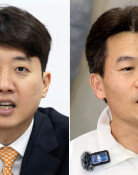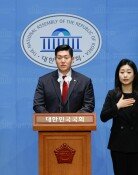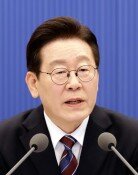Supreme Court Ruling to Disclose Investigation Records of the 1212 Coup and the Gwangju Uprising
Supreme Court Ruling to Disclose Investigation Records of the 1212 Coup and the Gwangju Uprising
Posted October. 03, 2004 22:06,
The Supreme Court has passed a final judgment against the prosecution, saying it was inappropriate that the prosecution refused a comprehensive disclosure of investigatory records of the December 12 Military Coup and the May 18 Gwangju Civil Uprising for Democratization.
However, the Supreme Court added a proviso that the prosecution is allowed to refuse a disclosure of certain parts on grounds when posing a threat to national interest and public security through such disclosures. Observers feel the proviso could prolong conflicts and controversies between the prosecution and general populace regarding investigative records sensitive disclosures.
The First Division of the Supreme Court (Chief justice: Lee Yong-woo) reported yesterday that it passed its final judgment on September 23 confirming the original decision made by the Seoul District High Court in favor of the plaintiff, Chung Dong-nyeon. Chung, former chairman of the standing committee of the Gwangju Democratic Civil Uprising Coalition, had raised a suit against the Seoul Central District Public Prosecutors Office for its refusal to disclose investigation reports of incidents such as the December 12 Military Coup.
In its written judgment, the Supreme Court stated that according to the Freedom of Information Act, an information disclosure refusal should be based on a law or be ordered by a law, but the reason quoted by the prosecution was the Prosecution Record Keeping Rule which is merely an internal rule of an administration agency.
Information can be kept nonpublic under the reason of national security and order, or to protect an individuals credit or reputation. Yet it should be proved that the non-disclosure argument applies to one of the above reasons through a detailed review of the records, it added.
The Court also said, The prosecution refused the disclosure of all the investigative reports under a general reason without reviewing the cases in detail. Therefore, such a refusal is inappropriate. The prosecution, however, can submit detailed reasons to refuse the information disclosures of its records.
The Court further stated that personal records, such as resident registration number, telephone number, personal assets, and health data, do not need to be disclosed, since they are considered as non-disclosure information.
The prosecution declared in July 1995 that it had no right of arraignment of those involved in the May 18 Gwangju Uprising, following an October 1994 decision where indictments of those involved in the December 12 Coup were suspended. Chung Dong-nyeon, after watching such responses by the prosecution, filed a suit in December 1995 against government asking reparation for damages and made a request in February 1998 to disclose investigation reports and courts records on these incidents. Ahn Sang-woon, lawyer for this case, said, We will request viewing and copying of the records to the prosecution after we prepare the expenses of copying and other activities as soon as the courts written judgment arrives. The copied records will be reviewed by the May 18 Memorial Foundation.
Soo-Hyung Lee sooh@donga.com







